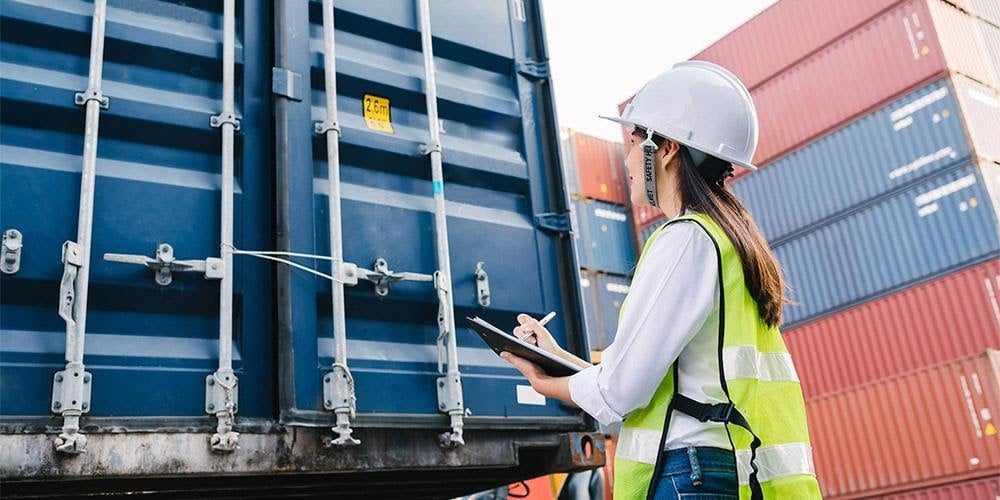
On March 23 this year, a huge event for the logistics industry occurred in the Suez Canal when a container ship called Ever Given ran aground, making the transiting vessels come to a full stop along the canal, which accommodates around 12% of the sea transportation and represents 9 billion dollars in goods that could not go through to reach their final destination.
An analysis of the Ever Given
So far, it is not completely clear what exactly caused this event of unimaginable proportions in the logistics industry: little has been elucidated in the form of several hypotheses, one of which is a deviation of the ship due to the high gusts of wind of over 43 mi/h passing through the Suez Canal at the time, the subsequent sandstorm or the excess weight the Ever Given was carrying.
What is crystal clear is the delays in the logistics chain as a result of this accident. It is calculated that at least 330 ships were on standby due to the complex situation that came up against them.
The alternative route in sea shipping to the Suez Canal means going around the entire African continent, passing through the Cape of Good Hope to then reach the other side of Europe, all of which involves an additional 30% of distance to go, increasing fuel and operative expenses and delaying delivery times.
This shows us that in fact all ships underwent a very tough situation as they needed to decide whether to use the alternative route to the Suez Canal with all its repercussions, or wait for the waterway to be clear enough and transit through it.
Post-crisis in the insurance sector
While experts say the real losses are a little harder to quantify, what everyone seems to agree is that the consequences to come in the logistics industry as a result of this blockage, and especially in ocean shipping and more particularly in the insurance sector will be felt for months.
As is commonplace in a large number of industries, there is a wide range of insurance options that can be purchased when working with freight forwarders, however, it is not common for sea transportation contracts to take responsibility and grant compensations due to delays. Besides, certain laws hold ocean shipping companies harmless in the event of human mistakes in navigation.
In line with this, the ship’s owner declared General Average, a sea law that binds shippers using the services of the Ever Given to pay a proportional amount of the costs needed to refloat the ship in order to have their goods released, meaning an additional burden in the whole situation.
Due to the uncertainty in this scenario and the few cases of previous incidents like this one that could shed light on how to proceed legally, in addition to having to conduct an exhaustive analysis of insurance policies, important claims will be made with relation to the Ever Given.
What’s in store for Mexico?
In today’s globalized world, all events related to the logistics industry taking place anywhere in the world not only bounce off in the industries of the country or countries involved, but they also affect everyone one way or another.
It is true there won’t be a direct consequence for Mexico owing to the Ever Given. Yet, the delay in the logistics chain will create sea congestion in many key areas, which may bring about a price increase in all carriers, including those in Mexico, which will definitely make an impact on the domestic economy, causing delays and an increase in production costs of various products and materials.
In the current logistics industry, it is paramount to be aware of the global conditions surrounding our sea and road transportation. At Akzent, we’re certain our over 20 years’ experience and route, weather and market analyses designed with the help of logistics experts will assist your business to effectively connect every move.
Related











